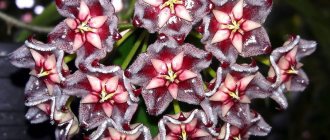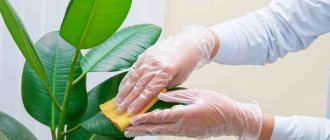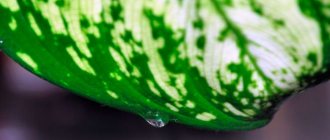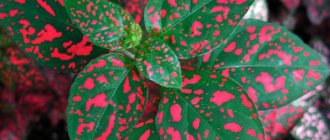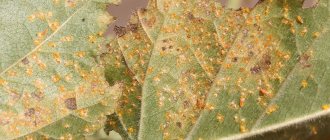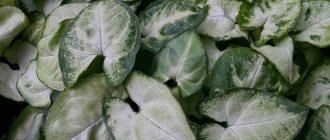Ficus is one of the most popular plants in city apartments. People began to grow it in their homes so long ago that it acquired its own myths, became a participant in superstitions and beliefs, and one of the materials in folk medicine. Now it is difficult to figure out which properties of the plant really exist and which were invented by our ancestors. Let's consider what ficus is, the benefits and harm to humans caused by this plant and other interesting features.
Is it possible to keep ficus benjamina at home?
This plant has various properties. The leaves of the flower contain certain substances that help purify and disinfect the air.
In many cultures, ficus is considered a harbinger of wisdom and happiness. That is why the leaves of this flower are often used as a raw material for making incense.
Ficus helps restore energy, overcome stress, and create harmony in everything. This plant does not contain any toxic substances, therefore, you can safely keep it in your home without fear for people and animals. The only thing worth remembering is that this plant is not recommended for allergy sufferers.
A new coronavirus mutation has been discovered in France: it can “cheat” the test
The doctor told how long the antiseptic lasts and whether the opened one loses its effectiveness
Anaerobic exercises, isometrics: deciphering common fitness terms
Flowers can only be given to good people and in a good mood. This will cause him to bring good energy.
Possible harm from the plant
Ficus Benjamina is a distinct species of ficus shrub that includes a number of different varieties. Depending on which subspecies we are talking about, its usefulness or harmfulness may vary.
Most of the ficuses in this family are absolutely harmless, but there are some representatives that can be toxic to children and pets. This is why some gardeners claim that this shrub is harmful in an apartment.
Contact of juice with the mucous membrane is especially dangerous. Even if a person is not allergic to this type of ficus, such close contact with it can lead to burns.
Poisonous or not
Is Ficus Benjamin poisonous or not? Despite the widespread misconception, this shrub is deservedly considered harmless to an adult. Yes, this plant, when its branches, trunk or leaves are damaged, releases juice that contains a certain amount of toxic substances, but in such dosages it is only dangerous for small children and pets.
It is extremely difficult to get poisoned by ficus juice. In order for the process of toxication of the body to start, you need to drink at least 100-150 milliliters of its juice. To do this, you need to chew about 5-8 leaves.
Are there allergies?
Any plant can become dangerous to humans, even medicinal chamomile, if one of the components found in its juice causes an allergic reaction. Ficus Benjamina is not a common allergen, but it can still be an irritant for certain people.
Signs of an allergy to the juice of this bush:
- Redness of the skin.
- Minor rashes.
- Itching.
- Burning of the skin.
- Drowsiness.
If a person has any of the above symptoms, he needs to immediately take an allergy pill and consult a specialized doctor as soon as possible.
Magic properties
Ficus Benjamin brings positive changes to several specific areas of life, namely:
- attracts good luck;
- improves health;
- attracts money;
- improves relationships between household members.
This is a fairly unpretentious plant that can attract happiness, luck and prosperity in all areas.
Home care for ficus
Ficus is now bred by many people, since planting it with your own hands is very simple, and the flower also looks very beautiful in the interior. It is believed that it helps neutralize negative emotions and protect your home from negative energy.
Moreover, many believe that he is able to attract wealth into the house.
Since ficus can react sharply to temperature changes, as a result of which the leaves fall off, therefore, you need to properly care for the plant in order to grow it strong and beautiful.
When growing, you need to consider factors such as:
- Temperature;
- Lighting;
- Humidity.
Before purchasing a ficus, you need it to grow in one place, since it is a very conservative plant and does not like to be moved. It is best if the room is sunny, with enough fresh air. In summer, you need to protect the ficus from direct sunlight, however, it should not be dark, as this can lead to slower growth. In addition, with sudden changes in lighting, the color of the leaves changes. You need to properly care for your ficus, and also remember that in summer the optimal temperature should be 25-30 ᵒС, and in winter – 16-20 ᵒС.
Negative signs
In addition to the positive effects of Ficus Benjamin, there are some negative signs associated with this plant. These include:
- makes home owners aggressive and nervous;
- makes men irritable;
- contributes to scandals;
- negatively affects personal life and scares off men.
If a single woman has a ficus in her house, then their relationship very rarely reaches marriage.
Creating a pattern on the face is real art therapy: we are inspired by bright images
How to avoid mouse hand syndrome: posture and hand training
“Everything hurts, but it’s bearable”: Pyotr Kuleshov admitted that he was vaccinated against COVID
Signs and superstitions
In eastern countries, Benjamin's ficus symbolizes only good things:
- the Chinese give a tree for a wedding or to the elderly for health and longevity, they believe that it will cleanse the room of negative energy;
- Indians claim that the flower frees the house from anger, bestows inner harmony, and the ability to wisely approach problems;
- Thais treat Benjamin with awe and respect; they believe that ficus scares away evil spirits and stops dark magic.
Only residents of the former Soviet Union have frightening superstitions about culture. Perhaps the propaganda that called the flower bourgeois is to blame. In any case, bad omens are no more than a hundred years old; ficus trees used to be respected and loved in Rus', so you can consider them stupid superstitions and ignore them.
Good omens
Benjamins cleanse the aura of the house - they collect, process negativity, and fill the space with positive energy. But they are sensitive to the attitude of the owners; they prefer that a woman care for the tree.
Good omens are associated with the plant:
- In a family where a flower grows, quarrels occur less often.
- Benjamin gives the owners of the ficus species health and vitality.
- If a woman cannot get pregnant, she must pick and root a branch of a tree growing in a large family. For the omen to come true, the pot is placed at the head of the bed and communicated as with a baby.
- Protects the house from witchcraft and evil forces.
- Ficus benjamina grows especially healthy and beautiful where family values are at the forefront.
- The tree improves diction, bestows oratorical abilities, on the one hand, eliminates inappropriate talkativeness, and prevents false words from falling through, on the other.
- Ficus benjamina planted in a pink ceramic pot with hearts attracts love.
How to properly place ficus in the house?
In order for the plant to bring maximum benefit, you need to choose the optimal room for it.
If Ficus Benjamin is quite large, then it is not recommended to keep it in the bedroom, as it has a fairly active aura. Small bushes of the plant, on the contrary, will only bring benefits. They will be useful for those who suffer from sleep disorders, as they help make sleep more sound and fulfilling.
To achieve harmony in the house, it is worth placing Ficus Benjamin in the living room. Then the space will be filled with positive energy. Conflicts and disagreements between household members will disappear.
To improve the financial situation of the family, it is worth placing the ficus in the kitchen. The owners will spend money wisely.
It is useful to place the plant in the office as it helps improve productivity. With the help of this small tree you can eliminate any conflicts and disagreements.
Description of the plant
Ficus Benjamina came to us from the tropical rainforests of Southeast Asia. It is named after the British botanist who specialized in seed plants, Benjamin Daydon Jackson. It grows in India, Southern China, the Philippines, Malaysia and Northern Australia. This is an evergreen representative of the Mulberry family. In a warm, humid environment, the tree can grow up to 30 meters in height, overgrown with branched shoots.
The trunk of the plant is gray-brown with rare brown streaks. Young erect shoots quickly become lignified. There are almost no aerial roots. The branches are drooping, forming a dense spreading crown. The leaves of Ficus Benjamin are thin, leathery, lanceolate in shape, with entire outer margins. Their length in large varieties reaches 13 cm, and their width up to 6 cm. In small-leaved varieties, the dimensions are much more modest. The central vein of light green color is clearly visible. The leaves are glossy. Different varieties have their own color - from light green to dark, with white, cream and yellow spots. Many varieties have edging on the leaves. The tip of each leaf is drawn into a drip point, characteristic of this type of ficus. Excess water flows down it and falls on the leaves.
Ficus leaves are located on the branches in the same plane. They sit on flexible short petioles (up to 2 cm), thanks to which even with the slightest breeze you can hear their amazing rustling.
Under natural conditions, ficus benjamina blooms with insignificant flowers. It bears fruit with oblong or round inedible paired fruits (syconia) up to 2 cm in diameter. As the fruit ripens, the color changes from red to burgundy. At home, ficus does not bloom or bear fruit.
The rhizome of Ficus Benjamin goes deep into the soil, at a distance often comparable to the height of the tree. However, the surface roots are also well developed. For example, they can easily break through the asphalt and intertwine with the trunk into a dense, intricate sculptural group.
In European countries with a dry climate, ficus benjamina grows as a single-stemmed tree with drooping branches, and is far from gigantic in size. Everywhere it is grown as an indoor flower in beautiful flowerpots as an ornamental foliage plant.
Young shoots of the plant are flexible and easily grow together. Flower growers use these properties to give the plant an unusual shape. If you have a creative streak, try to create from your ficus a unique, unique specimen, for example, with a pigtail stem, or with a crown similar to a ball or dome. Or maybe you want to grow a ficus tree in the form of a bonsai tree. To do this, you only need a great desire, a little patience, ingenuity and time - and your flower will gradually acquire the desired appearance.
A little about the benefits
Ficus benjamina is one of the top five filter plants. They purify the air by absorbing toxic substances from it (formaldehyde, benzene, toluene and the like, emitted by modern furniture, clothing, gas and heating appliances, electronics) and releasing oxygen into it.
This may be interesting: Monstera - caring for a beauty with a scary name
Medicinal properties
Traditional medicine uses ficus in the treatment of a wide range of diseases, discovering new beneficial properties of ficus every year. Most often, the plant is used in the treatment of the following diseases:
- Mastopathy. Ficus sap has anti-inflammatory properties, which allows other medications to work more effectively.
- Tumors. Lotions and decoctions from the leaves prevent the development of new formations in the body, and also slow down the growth of tumor cells.
- Liver disorders. A mixture of ficus juice with milk (1 teaspoon per glass) activates the activity of the organ, freeing cells from toxins.
- Rheumatism. Lotions made from the pulp of the leaves help reduce the intensity of joint pain.
- Bronchitis. A compress on the chest made from juice mixed with honey has a therapeutic effect.
- Bruises and contusions. Lotions made from roots and leaves boiled in oil stimulate blood circulation and accelerate tissue regeneration.
- Headache. A solution of ficus juice (1 tablespoon per 200 ml of water) has an irritating effect and causes the brain to switch to fighting harmful microelements. While reducing pain.
- Warts. A couple of large leaves are rolled through a meat grinder and a teaspoon of acetic acid (70%) is added. The resulting mixture is applied with a cotton swab to the wart, without touching the surrounding skin.
- Haemorrhoids. If there are lumps, soak a tampon in the juice and place it in the anus overnight.
- Fibroids. 1 tsp. juice is diluted with the same amount of water. Take once a day before meals. The duration of therapy is 7 days. After 2 weeks, treatment can be repeated.
- Toothache. The juice is diluted in 70% alcohol and infused for 24 hours. A few drops are applied to the tooth, and the pain gradually subsides.
If you take precautions when caring for and keeping the ficus in the house, it will not cause harm. Juice can be both poison and medicine. The main condition is to use it correctly, taking into account the individual characteristics of the body.
Common ficus: how to care
This perennial plant has a powerful root system, therefore, it must be planted immediately in a fairly large and capacious pot, as the roots grow quickly. With proper care, Ficus Benjamin grows quite large. It propagates very easily, the most important thing is to root the cuttings correctly, so anyone can plant it without much difficulty. Many novice gardeners wonder when exactly to replant this perennial.
A transplant must be carried out in such cases as:
- When it grows in transport soil;
- If the pot has become too small;
- If the soil is affected by fungi and diseases;
- Transplantation must be carried out during the breeding season.
In addition, some gardeners are concerned about why ficus loses its attractiveness, and for what reasons this happens. This plant needs to be trimmed periodically to form a beautiful crown and ensure better growth. When a flower is damaged by diseases and insects, treatment using certain chemicals is required, since over time the problem may worsen.
Ficus Benjamin is an exquisite noble beauty. This is simply an amazing indoor plant to add color to your home. Thanks to its attractiveness, this plant acts as a decorative decoration for absolutely any home.
Benefits of the plant
It is better to start studying the benefits and harms of Ficus Benjamin with its positive properties. The juice and pulp of the leaves of this plant are used in both traditional and folk medicine. In addition, ficus trees also bring benefits in everyday life:
- They purify the air from harmful substances (for example, benzene and phenols).
- Filters out toxins.
However, the main strength of this shrub is its medicinal properties. The undoubted benefits of this species have been confirmed more than once by scientists and doctors from all over the world.
Not long ago, a new beneficial property of this plant was discovered - soil cleansing. If small insects have settled in the soil, you need to water the soil with a mixture of water and shrub juice (4:1 ratio) for 2-3 weeks. After this, the substrate is heated in the oven for 3-4 hours.
Medicinal properties
Ficus Benjamina has been used as a medicine for over five centuries. Tinctures and mixtures from the leaves are included in many antibiotics, and recipes for ointments and lotions are passed on by word of mouth among those who prefer traditional medicine.
Tips on how to care for ficus at home
Growing ficus must be properly organized so that the flowers look beautiful and delight with their decorative appearance. For ficus, a dry and warm room with lighting in winter and autumn is preferable.
It is also important to carry out regular watering and spraying.
The higher the room temperature, the more light is required. The plant reacts very sharply to temperature changes and also sheds leaves, therefore, it is not recommended to place it on a cold floor. Watering is carried out as needed in winter, and in summer abundant watering is needed, preventing the soil from drying out.
For normal conditions, the plant requires:
- Feeding;
- Spraying;
- Loosening the crown.
Formation of the crown is periodically required, as this will give the plant a unique look and make it more beautiful and neat. In addition, after some time it may be necessary to transplant into a deeper and more voluminous pot. Growing ficus is not so difficult, and fertilizing will help ensure flowering. The amount of substrate depends on the time of year, as well as the growing conditions of the plant.
Rules for watering ficus
Ficus Balsamina grows quite quickly, especially with proper care. It is important to ensure proper watering. It is worth noting that there is no specific schedule for watering, however, you must ensure that the soil does not dry out and remains evenly moist.
If the top layer is dry, then the ficus must be watered in sufficient quantities.
In addition, it is important:
- Carry out spraying;
- Apply fertilizers;
- Periodically drain the root system.
It is advisable to water the ficus in several stages so that the ground is evenly saturated with moisture, but there is no excess water left in the pan. After about half an hour, when all the remaining moisture comes out through the holes into the pan, it needs to be drained. By fulfilling all the conditions for growing ficus efficiently and step by step, you can achieve very good results and grow a strong and healthy plant.
